- Home
- Paul Christopher
Lost City of the Templars Page 2
Lost City of the Templars Read online
Page 2
“Interesting,” said Peggy. They reached the roll-up doors and went out into the sunlight. The dark man who’d sat beside her briefly in the auction room was smoking a cigarette, leaning on the rear fender of the Jag. He watched silently as the young assistant tipped the box off the hand truck and eased it onto the pavement.
“There you go, missus,” said the assistant.
She took a heavy one-pound coin and pressed it into the young man’s hand. He handed it back. “Not necessary, missus, but thank you all the same.” The young man smiled at her and headed back inside the auction hall. Peggy smiled back; it was the most politeness she’d received from a stranger since she’d done a photo essay for the New York Times Magazine on the Amish.
“How much did you pay for the box?” asked the man leaning on the Jaguar. The accent was cultured, but definitely eastern European. At a guess she’d have thought Russian, or maybe Czech. Whatever the accent, she didn’t like the tone.
“Why do you care?” Peggy responded.
“It should have been mine.”
“You weren’t there to bid on it.”
“A call of nature,” said the man.
“Well, I can’t help that,” said Peggy. She looked up the street, wishing the taxi would come.
“The box should have been mine,” the man repeated, a little more insistently.
“You mentioned that,” said Peggy.
“I will pay you for it,” said the man.
“I’m not selling it.”
“I will give you a hundred pounds for it. You will make a profit.”
“I don’t want a profit,” said Peggy, irritated. “I want the box and it’s not for sale.” Why the hell did the guy with the Jaguar want a footlocker from 1928?
The taxi arrived, a boxy red Renault minivan with PRICE FIRST TAXI on the sliding door. The driver got out, opened the sliding door and hauled the footlocker inside. The man leaning on the Jaguar stepped forward and handed Peggy a business card.
“If you change your mind,” said the man. “My cell phone number is there. Anytime, day or night. I will await your call.” The last bit had a slightly sinister edge to it, as though something bad would happen if the call didn’t come.
“Don’t lose any sleep waiting,” she said. Peggy took the card and got into the cab.
“Where to, missus?” the cabbie asked.
“Palace Hotel, please,” said Peggy.
“Right you are, missus.” The cab moved off.
Peggy looked at the card:
Dimitri Antonin Rogov
Expeditions
“Custos Thesauri”
• • •
“Custos thesauri?” Rafi Wanounou laughed, staring at the card Peggy had handed him. “That’s ripe coming from a man like Dimitri Rogov! Latro thesauri would be more like it.” They sat at the breakfast table in their room at the Palace Hotel, the rusty footlocker between them.
“So what does it mean? Who is he?” Peggy asked her archaeologist husband.
“Custos thesauri means keeper, or guardian of the treasure, in Latin. Latro thesauri is the opposite, the thief of treasures. Dimitri Rogov would make Lara Croft look like an amateur and your beloved Indiana Jones into a bumbling boob.”
“How dare you cast aspersions on my secret love!” Peggy laughed. “You should look so good in a beat-up fedora.”
“You’re sounding more like my mother every day,” said Rafi, smiling back. The truth was, of course, that when Rafi had brought a girl home named Peggy Blackstock, she hadn’t been impressed. He told her the name in Yiddish was Schwarzekuh, but that didn’t seem to help much, either.
“Seriously, though,” said Rafi. “Rogov is infamous. He’s a tomb robber, a smuggler, a forger and an all-around thief. If he wants something he’ll do just about anything to get it.”
“Well,” said Peggy, “maybe we should find out what’s inside.”
It took the better part of an hour. A hammer and chisel borrowed from hotel maintenance, as well as spraying around the edges of the lid with something called Cillit Bang that came in a bottle with a bright pink label, finally did the trick.
The first thing out of the footlocker was the bundle of very frail-looking pinkish notebooks with faded designs on the covers. Rafi gently cut and removed the string; then, putting on a pair of the latex gloves he carried with him everywhere, he carefully opened the top notebook.
“Benn-zonna!” Rafi swore, his eyes widening as he stared down at the words in faint, sepia-colored ink.
Being the Private Journals of
Lt. Col. (R.A.) Percival Harrison Fawcett
in Search of the Lost City of Z
“I think it’s time we gave your cousin a call,” said Rafi slowly. “I think we’re going to need him.”
2
“It is a bug,” said Eddie Cabrera, staring down at the thing in the box. “A very big bug, but still a bug after all.”
“But don’t you see? It can’t be a bug.”
“It is a bug.” Eddie shrugged. “It has wings and many little feet and a round head with antennae sticking out of it. Of course it is a bug, my friend. It can be nothing else.”
“What I mean is it can’t be a bug in the present. A creature this large only got that way because of the much heavier concentrations of oxygen in the air millions of years ago.”
“All right, then,” said Eddie. “It is a very old bug.”
“But it’s not,” said Rafi. “It’s only been dead for a few years, a hundred at most.”
“A dead bug is a dead bug, Doctor. How long it has been dead and pinned down to a piece of wood with its wings torn off is of very little interest to the bug in question. A hundred years, millions, what does it matter to the bug?”
“A philosophical Cuban, dear God,” murmured Rafi Wanounou.
“He’s been hanging around with Doc for too long,” said Peggy Blackstock, sprawled across the couch in their suite at Claridge’s Hotel in London and reading the room service menu. “I wonder if I should have the chocolate and black currant cannelloni or the praline streusel with the salt butterscotch ice cream.”
“How about a cup of tea with lemon and a slice of dry toast?” said Rafi.
“Is that supposed to be a comment on my weight?” Peggy asked. “Because we haven’t been married long enough for you to make comments like that.”
“It’s a comment on the health of your arteries,” laughed Rafi. “I am a doctor, you know.”
“You’re a doctor of archaeology,” said Peggy. “The last artery you looked at belonged to a ten-thousand-year-old mummified dog.”
“It was a cat actually.”
Lieutenant Colonel John “Doc” Holliday, U.S. Army Rangers (retired), came out of one of the bedrooms in the lavish hotel suite, a stapled folder in his hands containing a photocopy of the complete journals Peggy and Rafi had found in the chest picked up at the auction in Torquay. “Has anyone actually read these things?” he asked.
“I flipped through them,” said Peggy with a shrug.
“I thought I’d leave that to you,” said Rafi.
“Fawcett made eight trips to the Amazon Basin. On the last one he disappeared.”
“Which is when all the legends started.” Peggy nodded.
“Two things that are mentioned in the journals—he was financed by a mysterious group that called itself ‘the Glove’ and he made a secret trip to the Arquivo Distrital de Lisboa, the Lisbon Archives in Portugal. He was particularly interested in a shipping company owned by someone named Pedro de Menezes Portocarrero, a high-ranking officer in the navy and also a big wheel in the spice trade, particularly pepper, which was worth its weight in gold back in the fourteen hundreds. It also appears that Pedro was a bigwig in the Real Ordem dos Cavaleiros de Nosso Senhor Jesus Cristo.”
“The Templars,” said Eddie. “The same as the Brotherhood in Cuba.”
“Exactly,” said Holliday. “Anyway, in 1437 he sent three of his biggest ships to Goa in the Indian
Ocean. They were the Santo Antonio de Padua, the Santo Ovidio de Braga and the Santo João de Deus. He also dropped off a man in the Azores named Gonçalo Velho Cabral, a Portuguese monk and commander in the Order of Christ who was effectively the first governor of the islands. Cabral was traveling on board the Santo Antonio de Padua and mentioned to the captain that the ship seemed to be riding very low in the water for a vessel under ballast and outward bound in search of cargo.”
“Too much information, too many names,” complained Peggy.
“Give me a second,” soothed Holliday. “I’m getting to the point.”
“Thank God,” muttered Peggy.
“After voicing his suspicions the captain simply handed Cabral a white leather glove and nothing more was said. Fawcett only discovered this by cross-indexing Cabral’s name in the archives and reading his journals. The glove was a sign that the ships were on Templar business, so Cabral kept his mouth shut.”
“Go on,” said Rafi, taking an interest now, his enormous, impossible “bug” forgotten for the moment.
“Back then riding currents was really the only way to navigate. For a ship to go from Lisbon to Goa, they’d ride the North Atlantic Drift down past the Canaries, catch the Equatorial Countercurrent under the Horn of Africa and then head west and south on the South Equatorial Current until they reached the Cape of Good Hope, where they’d swing east again and pick up the currents in the Indian Ocean. Except they never made it.”
“What does that have to do with Fawcett?” Peggy asked.
“Nothing,” said Holliday. “Except that the South Equatorial Current swings right past the mouth of the Amazon, and while Eddie and I were cooling our jets in the Bahamas a while back, the Excalibur Marine Exploration Corporation, which is a fancy name for a bunch of Brit treasure hunters, announced that they’d found the remains of a four-masted ship; there’s almost no doubt that she’s the Santo Antonio de Padua.”
“I still don’t get it,” said Peggy. “Boats sink or go down in hurricanes.”
“The ships were supposedly heading to Goa to pick up a shipment of pepper. According to Excalibur Marine Exploration, the hull of the Santo Antonio de Padua was stacked with barrels full of gold coins.”
“Coins to buy the pepper with.” Peggy shrugged.
“Twelve tons of French Charles the Fifth gold francs?”
“It does seem a bit extreme,” the young woman agreed.
“None of the ships ever made it to Goa and none of the ships ever returned.”
“You’re saying they went up the Amazon?” Rafi asked.
“That, and something else; I think our friends ‘the Glove’ knew that long before they financed Fawcett’s trip.”
“No entiendo,” said Eddie. “Explain this.”
“Sure. The guy who was the British grand master of the White Templars in 1925 was a man named Sir Hugo Sinclair, second viscount of Stonehurst and later Lord Grayle of Ashford.”
“We know this how?” Peggy asked.
“Because his name is in the notebook Brother Rodrigues gave me as he lay dying on the island of Corvo in the Azores. The same notebook that gave me the numbers I can use to pay for suites like this at Claridge’s.”
“I thought you only used that money when it had something to do with the Templars now,” said Rafi.
“It does,” said Holliday. “Guess who the chairman and CEO of Excalibur Marine is.”
“Tell us before we all die of curiosity,” sighed Peggy.
“Lord Adrian Grayle, Hugo Sinclair’s grandson. One of the men on his board of directors is none other than Dimitri Antonin Rogov.”
“Oh dear,” said Peggy.
3
The British Museum of Natural History on London’s Cromwell Road would have provided excellent lodgings for Harry Potter’s Voldemort or Tolkien’s Sauron. It had ten times more Victorian towers and oddball staircases than the Smithsonian Castle in Washington and looked even more ominous than the Spasskaya Tower in the Kremlin. All of which was a little odd since it was designed and built by a British Quaker named Alfred Waterhouse in 1881—though perhaps not so odd given that Waterhouse’s first commission as an architect had been a cemetery. The collections of the museum went back more than two hundred years to the “Curiosities” collected by Sir Hans Sloane, the Irish physician, which eventually formed the basis of the British Museum, of which the Natural History Museum was an offshoot.
Rafi and the rest of the crew found Professor Kenneth Anger, Oxon, Balliol College, M.A., Ph.D. several times over, emeritus director of the Department of Invertebrate Anthropology in the tower room he’d been assigned to after turning seventy and stepping down as the active director. Anger himself looked like everyone’s idea of a cartoon Merlin the Magician. He was barely more than five feet tall with long snow-white hair, a long white beard and wire-rimmed spectacles perched halfway down a Roman nose far too big for his plump, small face.
The professor’s round office was relatively roomy and contained dozens of heavy shelves filled with bits and pieces of fossilized creatures, most of them insects. The leftover space was given over to a desk, piles of books and papers, three cozy armchairs upholstered in green leather and a gas fireplace in the corner. When they opened the door to the office, the diminutive professor was standing on the top rung of a rickety-looking wooden library ladder trying to find something on one of the upper shelves. He suddenly gave a cry of triumph, grabbed at a foot-square oblong of rock and proceeded to tip over backward, toppling off the ladder.
“Dios!” Eddie said. He took three huge steps forward and caught Anger only a split second from the stone floor and a fractured spine.
“Good Lord!” Anger said as Eddie stood him on his feet. He staggered weakly to his desk and sat down behind it. “Very kind of you. I do hope you didn’t strain anything.”
“You don’t weigh much more than a bird, Professor.” Eddie smiled, towering over the man.
“Qué tipo de ave?” Anger asked curiously. The professor spoke eight different languages, the result of a lifetime spent digging up fossils all over the world.
“A large goose perhaps.” Eddie smiled again.
“Ah yes, Anatidae; quite a large family. Not my field really. There was a very large gooselike creature called Dasornus emuinus, which used to fly up and down the Thames fifty million years ago skimming the water for fish. It had teeth and a five-meter wingspan.”
“Fascinating,” said Rafi, sitting down in one of the armchairs. “What would you call a meat-eating dragonfly with meter-long wings?”
“Meganeura,” said Anger promptly. “I’ve got one or two in my collection.” He waved a small hand at the shelves around him.
“We’ve got one, too,” said Holliday. “From a survivor of Fawcett’s last expedition in 1925.”
“You can’t mean Percy Fawcett,” said Anger.
“The very one,” replied Holliday.
“I had no idea he was interested in fossils,” said Anger musingly. “I should have thought blowguns and shrunken heads would be more his sort of thing.”
“Apparently not,” said Holliday.
“You wouldn’t happen to have brought it with you, I suppose.”
“As a matter of fact, we did,” said Peggy. She stood up, walked over to the professor’s desk and put the box down in front of Anger. The elderly paleontologist took the top off the box and stared down into it.
“This can’t be,” he said, looking up at his visitors, eyes blinking rapidly behind his spectacles.
“But it is,” said Rafi.
“But it can’t be,” said Anger. “It’s scientifically impossible. During the carboniferous era a hundred million years ago, the atmosphere was much denser and the oxygen levels were extremely high. That’s most of the reason creatures like Meganeura and Dasornus emuinus grew so large. The weight of their bodies and wings today would make it physically impossible to fly.”
“But it did fly, and not ten millions years ago. The evidence is right
in front of your eyes.”
“Is there any documentation regarding this … insect’s provenance?” Professor Anger asked, looking down into the box.
“None,” said Holliday.
“This doesn’t require Sherlock Holmes to deduce,” said the professor. “Fawcett explored the Amazon Basin primarily. We can assume that it came from somewhere in that vicinity.” Anger steepled his hands together under his very large nose.
“Big vicinity,” said Holliday.
“Not when you take the other necessary requirements into consideration.”
“An area of high oxygenation,” said Rafi.
“And somewhere isolated from the surrounding ecosystems,” said the professor. “A creature like this one wouldn’t survive long in an area where there were large predators.”
“Where do you get areas of high oxygenation in the Amazon?” Peggy asked.
“The landform would most likely be a sinkhole of some sort, a large one,” said the professor. “And it would require a great deal of niter in the soil.”
“I was no good at high school chemistry,” said Peggy.
“Salitre,” said Eddie. “In English you call it saltpeter.” He smiled. “That Cuban education of mine, senora, it was very good no matter what you think of poor old Fidel.”
“Bravo, Senor Cabrera, quite right.” Anger nodded.
“So, where do you find that combination?” Peggy asked.
“A tepui, I should think, probably a large unexplored one next to the border with Venezuela.”
“Okay,” said Holliday. “You’ve been a great help.”
“My pleasure,” said Anger. “If there’s anything else I can do to help …”
“Actually, there is,” said Holliday. “You could take care of our Meganeura for us.”
“Certainly,” said the professor, “I’d be happy to.”
“And keep it under your hat?”
“Under my hat … oh, yes, quite! Mum’s the word.”
• • •
Pierre Ducos, French master of the White Templars, sat at the end of the long walnut table in the principal dining room of Lord Grayle’s Stonehurst Hall, a long white leather gauntlet set formally in front of him.

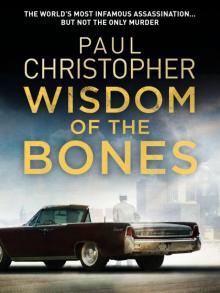 Wisdom of the Bones
Wisdom of the Bones The House of Special Purpose
The House of Special Purpose The Second Assassin
The Second Assassin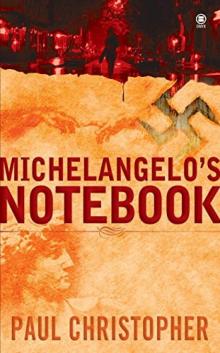 Michelangelo's Notebook
Michelangelo's Notebook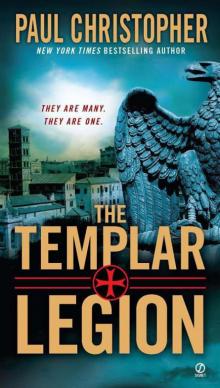 Templar Legion
Templar Legion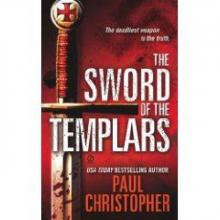 The Sword of the Templars t-1
The Sword of the Templars t-1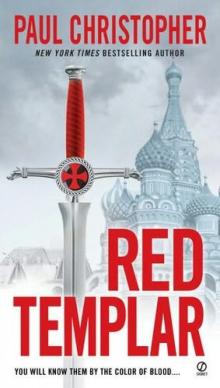 Red Templar
Red Templar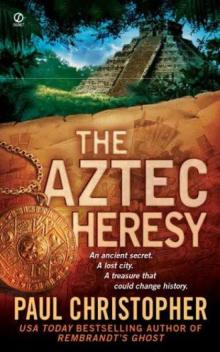 The Aztec Heresy
The Aztec Heresy The Templar Legion
The Templar Legion Rembrandt's Ghost
Rembrandt's Ghost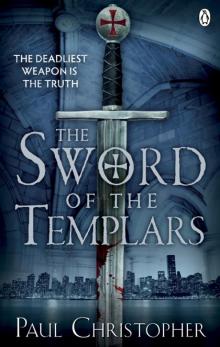 Sword of the Templars
Sword of the Templars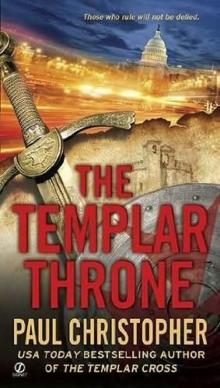 The Templar throne t-3
The Templar throne t-3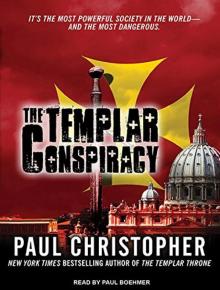 The Templar Conspiracy
The Templar Conspiracy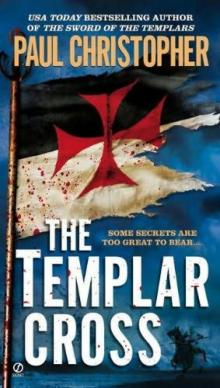 The Templar Cross t-2
The Templar Cross t-2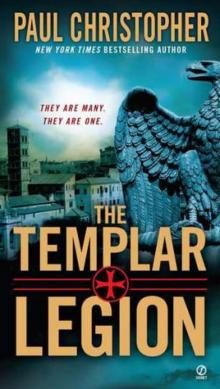 The Templar Legion t-5
The Templar Legion t-5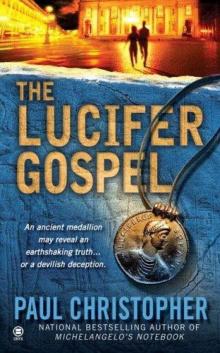 The Lucifer Gospel
The Lucifer Gospel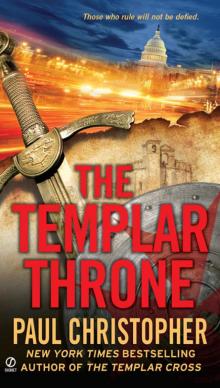 Templar Throne
Templar Throne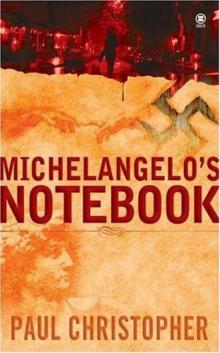 Michelangelo_s Notebook fr-1
Michelangelo_s Notebook fr-1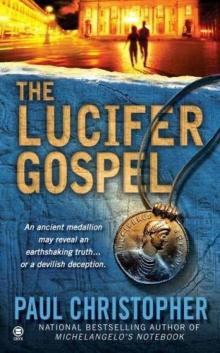 The Lucifer Gospel fr-2
The Lucifer Gospel fr-2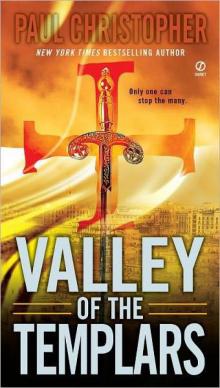 Valley of the Templars ts-7
Valley of the Templars ts-7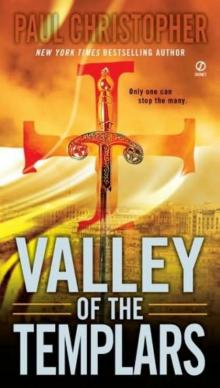 Valley of the Templars
Valley of the Templars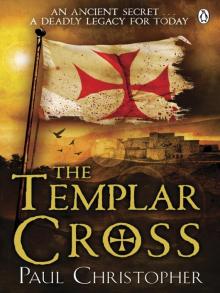 Templar Cross
Templar Cross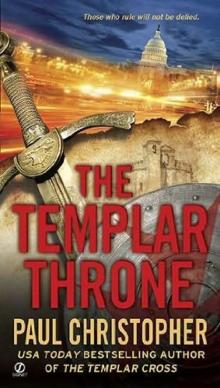 The Templar Throne
The Templar Throne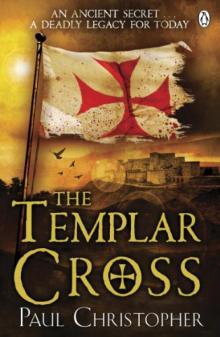 The Templar Cross
The Templar Cross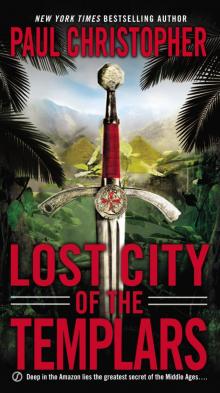 Lost City of the Templars
Lost City of the Templars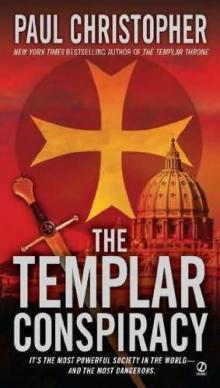 The Templar conspiracy t-4
The Templar conspiracy t-4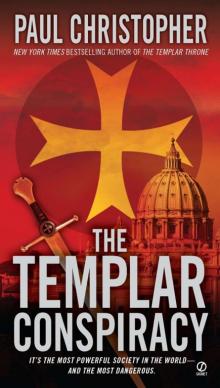 Templar Conspiracy
Templar Conspiracy